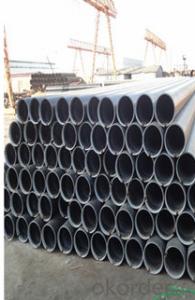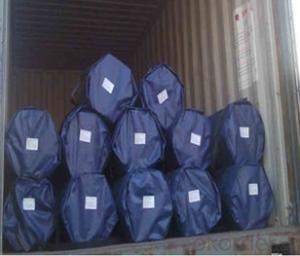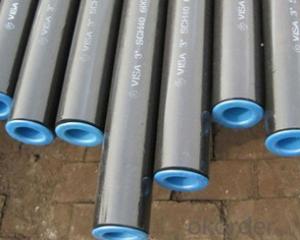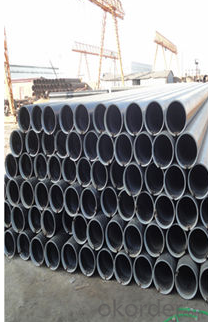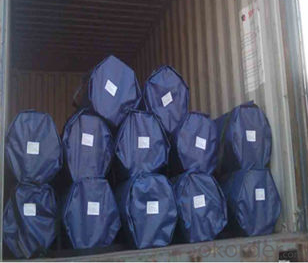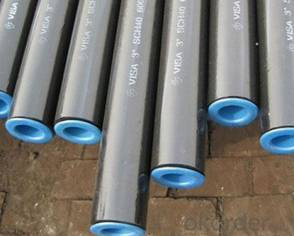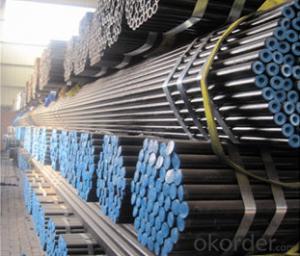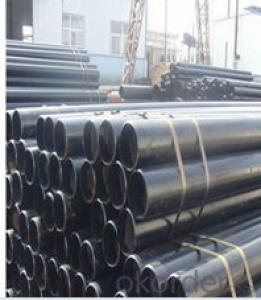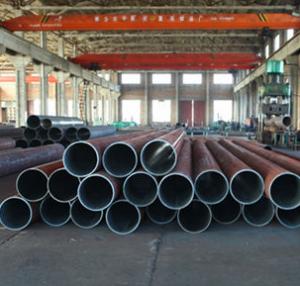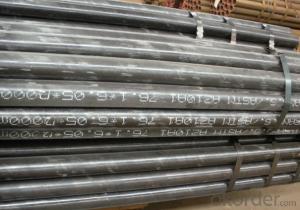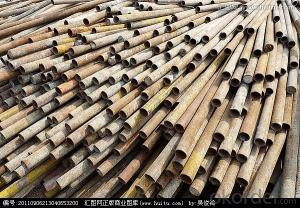High-quality Carbon Seamless Steel Pipe For Boiler 16MN CNBM
- Loading Port:
- Qingdao
- Payment Terms:
- TT OR LC
- Min Order Qty:
- 10 pc
- Supply Capability:
- 30 pc/month
OKorder Service Pledge
OKorder Financial Service
You Might Also Like
Quick Details
| Thickness: | 3 - 60 mm | Section Shape: | Round | Outer Diameter: | 21.3 - 1220 mm |
| Secondary Or Not: | Non-secondary | Application: | fluid pipe,boiler pipe, structural pipe, oil/gas/water pipe etc | ||
| Technique: | Hot Rolled | Certification: | ISO9001-2000, ISO14000, ISO18000 , API 5L | Surface Treatment: | Painted, Oiled, galvanized or phosphate etc |
| Special Pipe: | API Pipe | Alloy Or Not: | Is Alloy | Technique:: | Hot rolled or cold rolled |
| Special pipe:: | API/ ASME/thickwall/oil/gas/water pipe | Length:: | 3-12m | Treatment of two ends:: | Beveled end , plain end etc |
| Brand:: | Bai Chuan | Third Party Inspection:: | BV, SGS etc. | Schedule:: | SCH10-SCH160, XS, XXS |
| Other Material:: | 10#, 20#, 16Mn, Q345 etc | Material Type:: | Carbon steel/ Low alloy steel | Producing standard:: | American/Japanese/ German/ Britain/ Chinese standard |
| Grade: | A53(A,B),A106(B,C),A210,API J55,St37,STPG42,A53-A369,API J55-API P110,ST35-ST52 | Standard: | BS EN10296,JIS G3452-2004 |
1. Out Diameter: | 21.3mm-1220mm |
2. Wall Thickness: | 3mm-60mm |
3. Length: | 3m-12m |
4. Producing Standard: |
|
5. Main Material: (Carbon Steel & Low Alloy steel) |
|
6. Special specifications: | Available according to customer’s requirements and quantity. |
7. End Shape: | Beveled end , plain end, varnished, or adding plastic caps to protect the two ends as per customer’s requirements. |
8. Surface treatment: | Painted, Oiled, galvanized, phosphate etc. |
9. Usage: |
|
10. Certificates: | ISO9001-2000, ISO14000, ISO18000, API 5L certificate |
11. Third party inspection: | Welcome you to send a third party inspecting company (BV, SGS etc) to check the quality of our final products. |
12. Pictures: | our producing flow chart, our factory, production line, inspecting equipments, our products are listed below for your reference. |
- Q: How are steel pipes protected against soil movement?
- Steel pipes are protected against soil movement through various methods such as using casing pipes, employing anchor systems, implementing protective coatings, and utilizing concrete thrust blocks. These measures ensure that the steel pipes remain stable and secure in the event of soil movement.
- Q: How do steel pipes perform in high-altitude applications?
- Steel pipes perform well in high-altitude applications due to their strength, durability, and resistance to extreme weather conditions. They can withstand the low temperatures and high winds typically found at high altitudes, making them a reliable choice for various industries such as oil and gas, construction, and infrastructure development. Additionally, steel pipes have the ability to maintain their structural integrity under high pressure, making them suitable for transporting fluids and gases at high altitudes.
- Q: How do you calculate the bending moment of a steel pipe?
- To determine the bending moment of a steel pipe, one must take into account both the applied load and the structural characteristics of the pipe. The bending moment quantifies the internal forces within the pipe caused by the applied load. To calculate the bending moment, one can use the following equation: Bending Moment = Load x Distance In this equation, the load represents the external force acting on the pipe, and the distance refers to the separation between the point of load application and the point where the bending moment is being evaluated. For an accurate bending moment calculation, it is necessary to consider the properties of the steel pipe. These properties encompass the pipe's cross-sectional area, second moment of area (also known as the moment of inertia), and the modulus of elasticity. The second moment of area demonstrates the pipe's resistance to bending and can be computed based on the dimensions of the pipe's cross-section. The modulus of elasticity signifies the pipe's stiffness and can be obtained from material properties data. Once the load, distance, cross-sectional area, moment of inertia, and modulus of elasticity are determined, they can be inputted into the bending moment equation to ascertain the bending moment for the steel pipe. It is important to recognize that the calculation of bending moment assumes linear elastic behavior, which implies that the pipe does not surpass its elastic limit nor undergo plastic deformation. If the pipe is exposed to loads surpassing its capacity, the bending moment calculation may not accurately depict the actual behavior of the pipe. In such instances, it is recommended to consult a structural engineer or employ more sophisticated analysis methods to precisely evaluate the bending moment.
- Q: How are steel pipes used in the construction of stormwater drainage systems?
- Steel pipes are commonly used in the construction of stormwater drainage systems due to their durability and strength. They serve as underground conduits to efficiently transport stormwater away from built-up areas, preventing flooding and water damage. Steel pipes offer high resistance to external pressure and are capable of withstanding heavy loads, making them suitable for underground installations. Additionally, their corrosion-resistant properties ensure long-term effectiveness and minimize maintenance requirements. Overall, steel pipes are essential components in stormwater drainage systems, providing reliable and efficient water management solutions.
- Q: What are the different types of thread connections used in steel pipes?
- The different types of thread connections used in steel pipes include tapered threads such as NPT (National Pipe Thread), BSPT (British Standard Pipe Taper), and API (American Petroleum Institute) threads. There are also parallel threads like BSP (British Standard Pipe) and G (ISO 228-1). These thread connections are used to join and seal steel pipes in various industries and applications.
- Q: What connections are there for concrete filled steel tubular column foundations?
- The Liang Duan local widening joint is achieved by the continuous construction of longitudinal steel bars around the steel tube. At the beginning of the creation of additional stirrups should be widened longitudinal reinforced wrap, Liang Duan local widened joints of steel reinforced concrete beam and corbel overlapping transition zone can transmits beam internal force, bending steel bracket in both shear and participation. The node form is used in building engineering in Xiamen. The force transfer path of this joint is clear and reliable, with less welding on site and more convenient for construction. This kind of node passes shear stress through the bracket, and the stress is more concentrated.
- Q: How are steel pipes used in the manufacturing of appliances?
- Steel pipes are commonly used in the manufacturing of appliances as they are strong, durable, and resistant to corrosion. These pipes are used for various purposes such as supply and distribution of water, gas, and other fluids, as well as for structural support and framework in appliances. They are often used for creating the internal plumbing systems, ventilation ducts, and electrical conduits in appliances, ensuring efficient functioning and reliability.
- Q: What are the common standards and specifications for steel pipes?
- The common standards and specifications for steel pipes include ASTM A53, ASTM A106, API 5L, and ISO 3183. These standards outline the requirements for the manufacturing, dimensions, and mechanical properties of steel pipes used in various industries such as oil and gas, construction, and transportation. Additionally, specific applications may have their own standards and specifications that need to be met for quality and safety purposes.
- Q: How do you calculate the maximum allowable deflection for steel pipes?
- To calculate the maximum allowable deflection for steel pipes, you need to consider various factors such as the pipe diameter, material properties, support conditions, and the desired level of deflection. The maximum allowable deflection is typically determined based on industry standards and codes. One commonly used method for calculating the maximum allowable deflection is based on the pipe's span-to-diameter ratio (L/D ratio). The L/D ratio is the ratio of the pipe's span (distance between supports) to its diameter. Several industry codes provide guidelines on the maximum allowable deflection based on the L/D ratio. For example, the American Society of Mechanical Engineers (ASME) B31.1 Power Piping Code suggests that for carbon steel pipes, the maximum allowable deflection should not exceed 3% of the pipe's span for an L/D ratio of 100 or less. However, for higher L/D ratios, the deflection limit decreases, ensuring the pipe's stability and structural integrity. To calculate the maximum allowable deflection using the L/D ratio method, you would first determine the L/D ratio based on the span and diameter of the pipe. Then, referring to the applicable code or standard, you can find the corresponding maximum allowable deflection limit. It is important to note that other factors such as the pipe material's yield strength, wall thickness, and the type of loading (e.g., dead load, live load) also influence the maximum allowable deflection. Therefore, it is crucial to consult the relevant industry standards, codes, and engineering principles to accurately calculate the maximum allowable deflection for steel pipes.
- Q: Can steel pipes be used for conveying oil?
- Yes, steel pipes can be used for conveying oil. Steel pipes are commonly used in the oil and gas industry for transporting oil due to their strength, durability, and resistance to corrosion. The high strength of steel pipes allows them to withstand the high pressure and temperature conditions that are often associated with oil transportation. Additionally, steel pipes are less prone to leakage and damage compared to other materials, making them a reliable choice for conveying oil over long distances. Moreover, the smooth interior surface of steel pipes helps to minimize friction and enhance the flow of oil. Overall, steel pipes are a preferred option for oil transportation due to their superior mechanical properties and long-term performance.
Send your message to us
High-quality Carbon Seamless Steel Pipe For Boiler 16MN CNBM
- Loading Port:
- Qingdao
- Payment Terms:
- TT OR LC
- Min Order Qty:
- 10 pc
- Supply Capability:
- 30 pc/month
OKorder Service Pledge
OKorder Financial Service
Similar products
Hot products
Hot Searches
Related keywords
